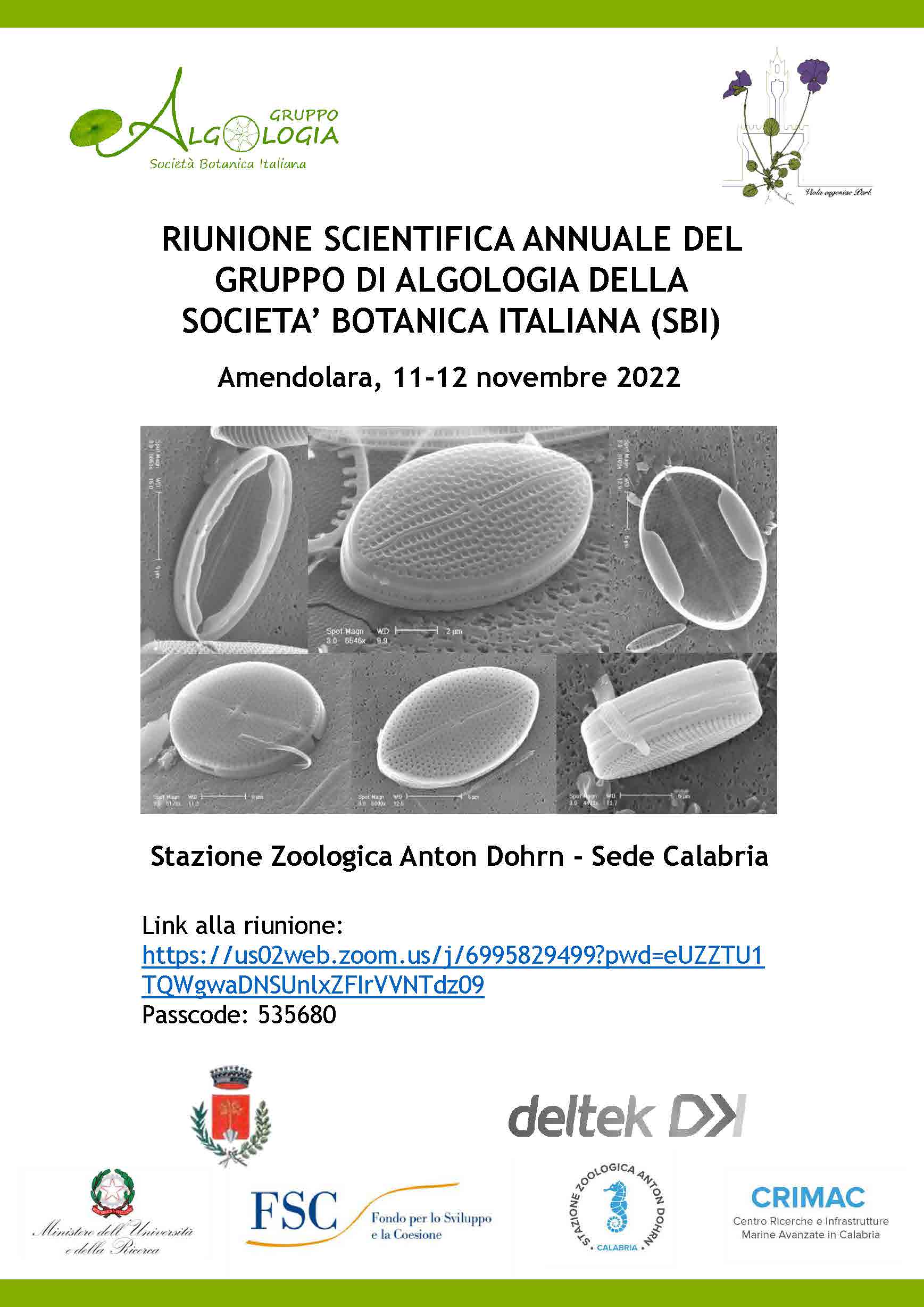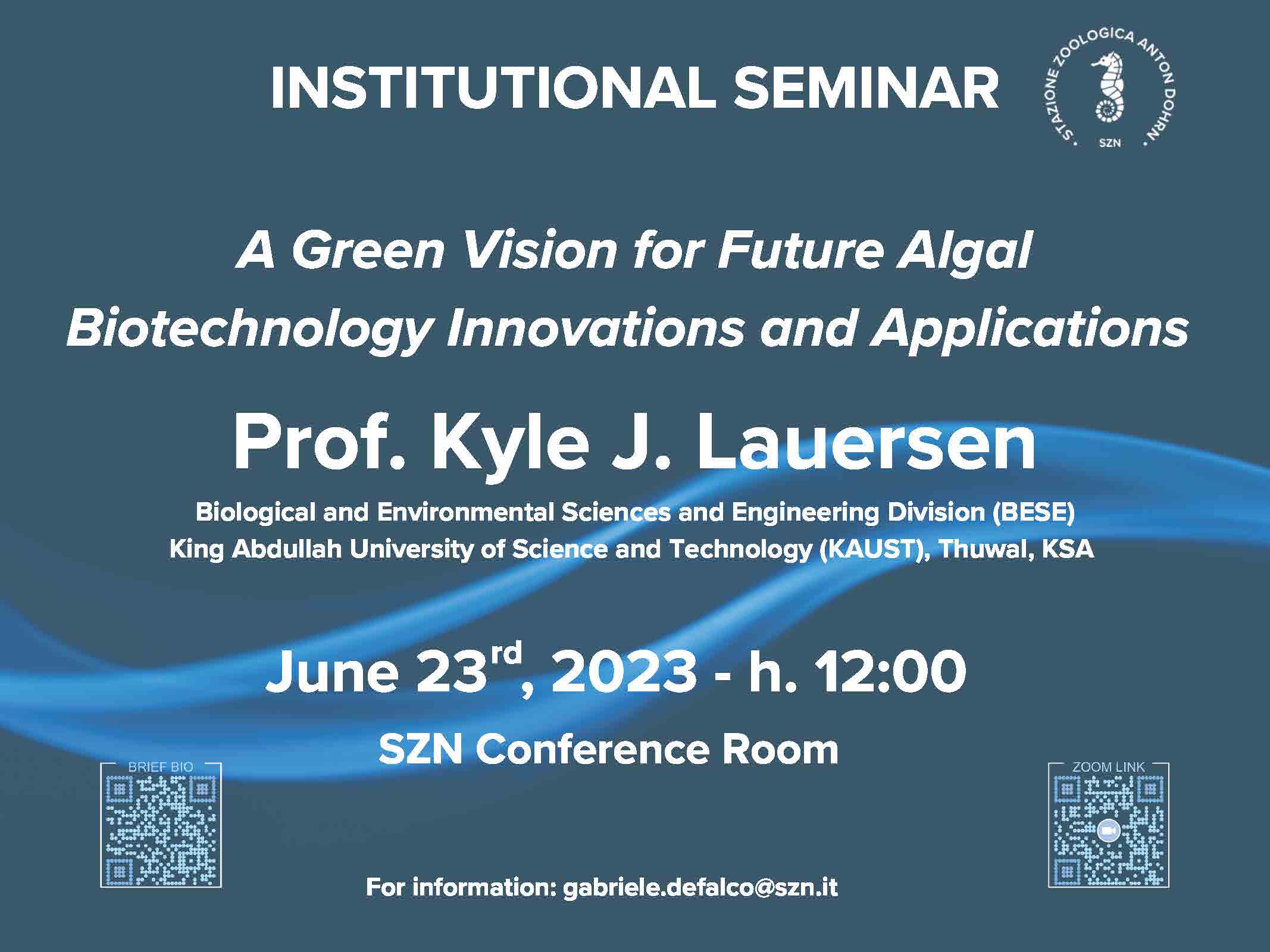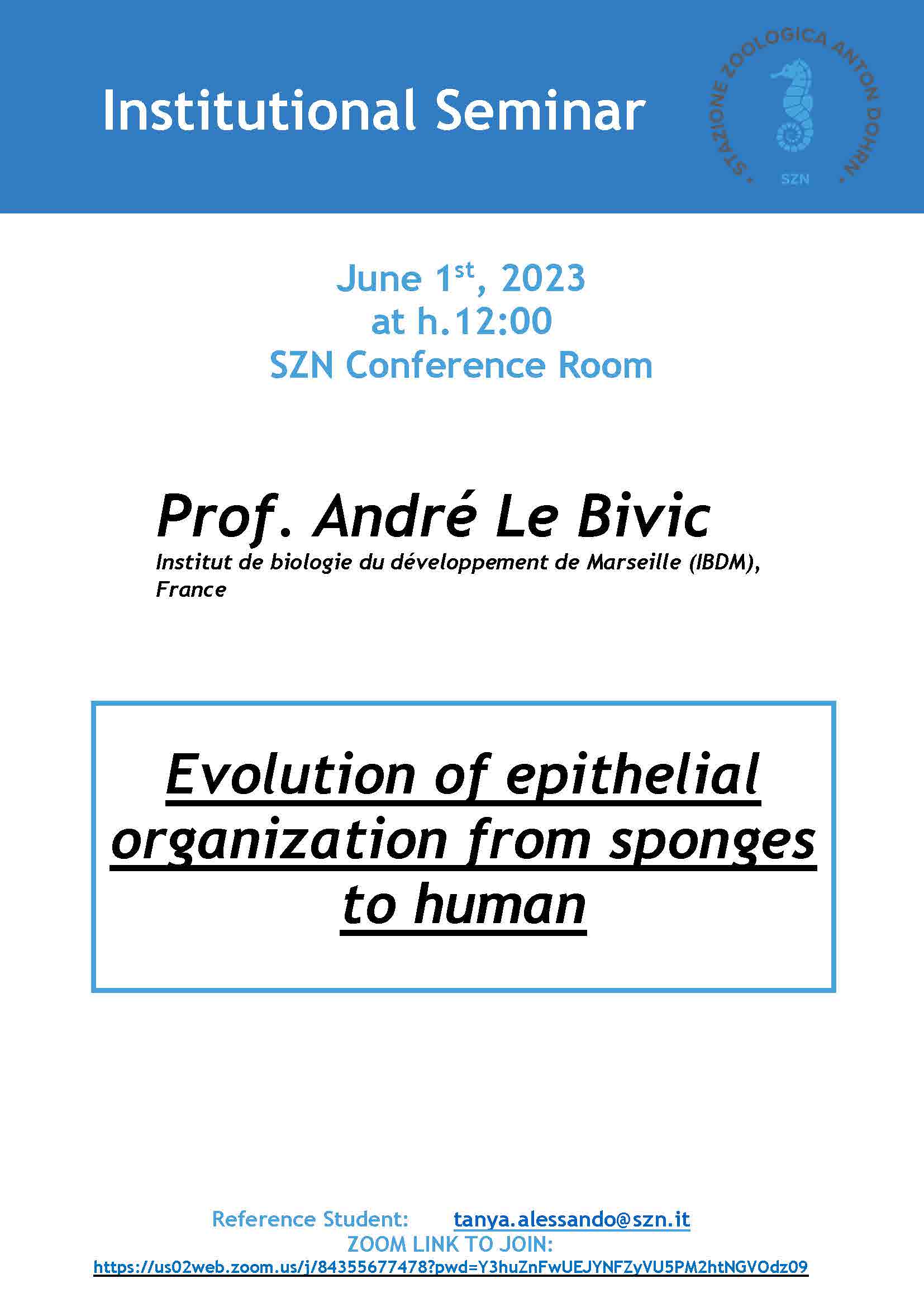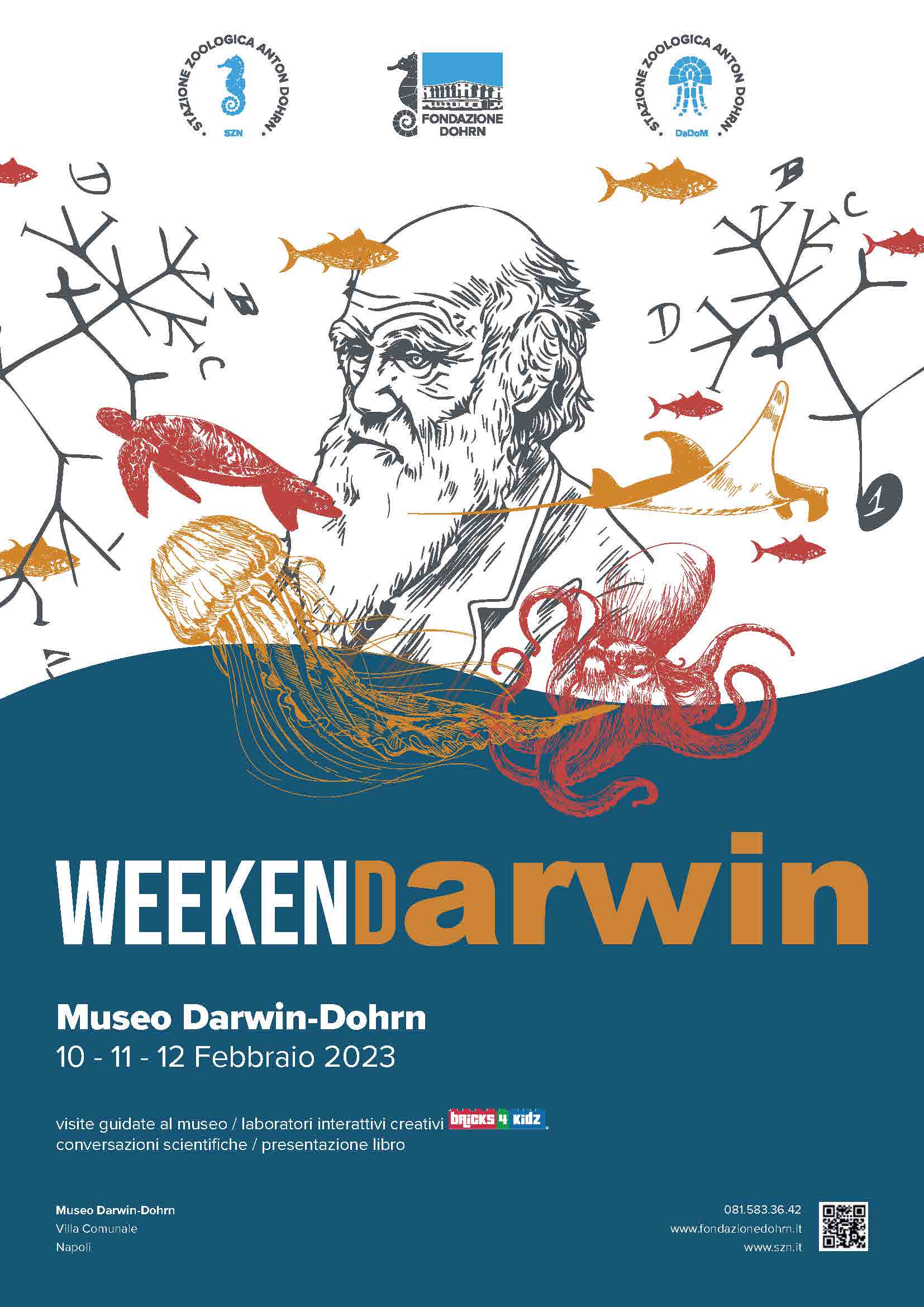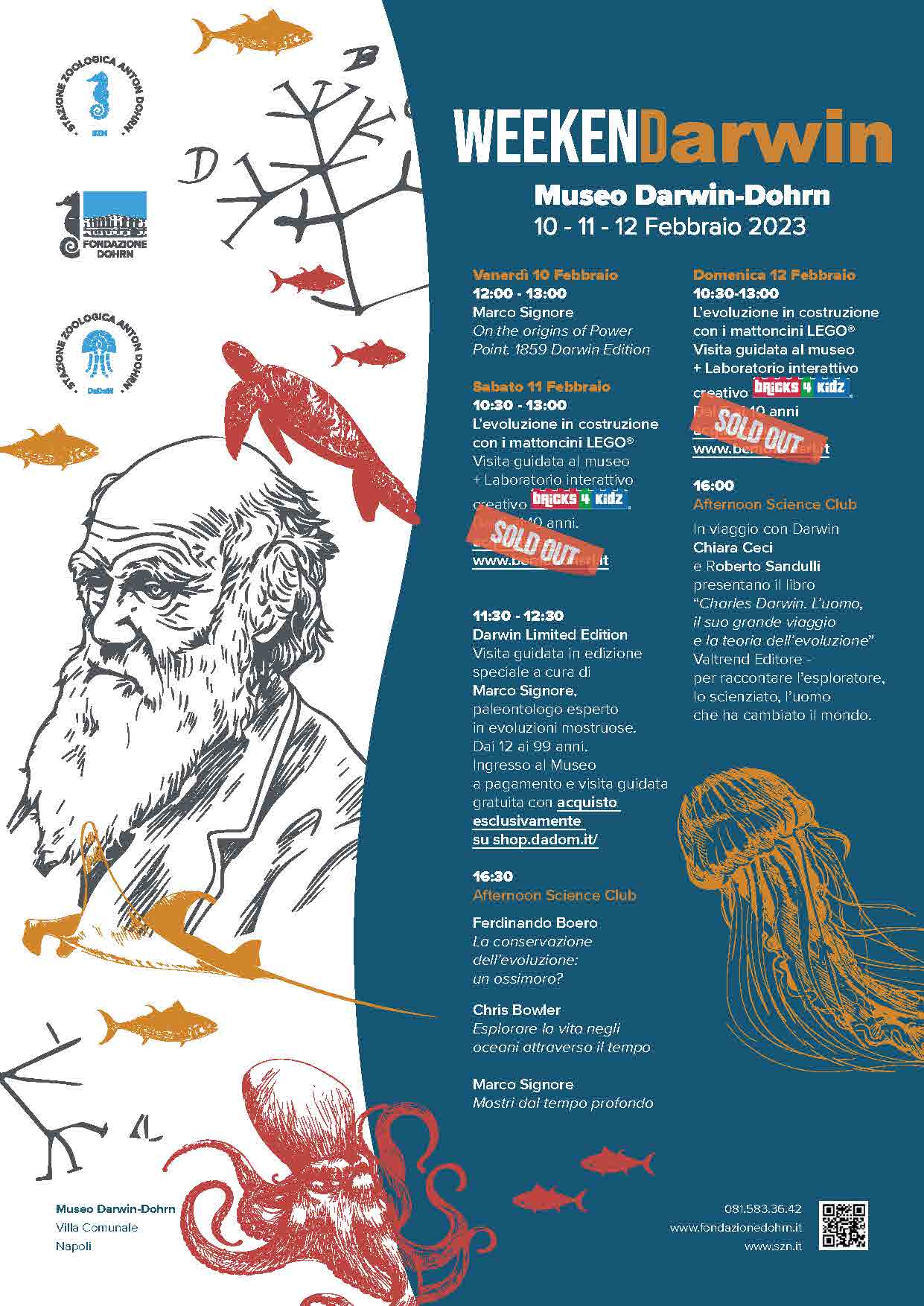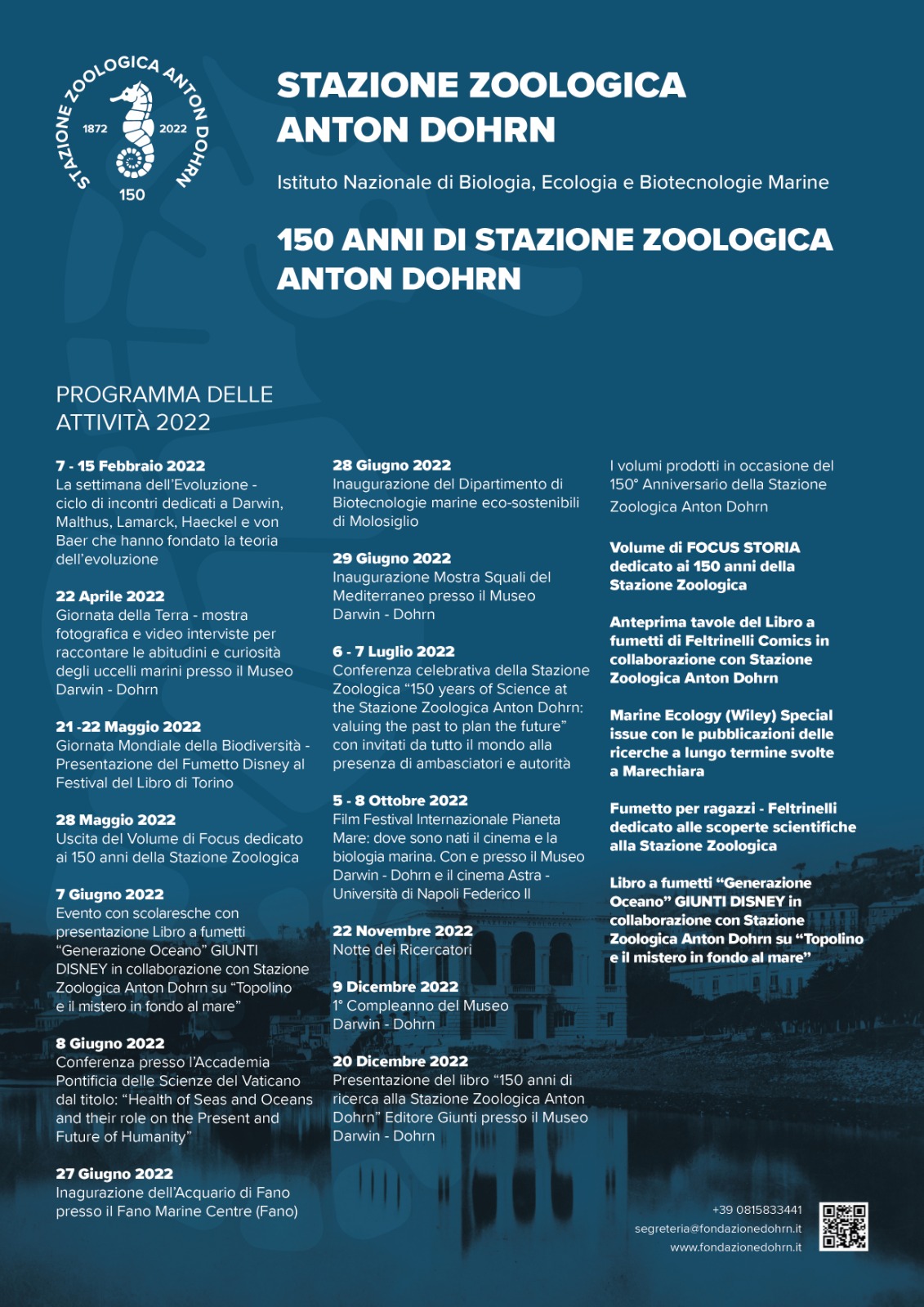News
Call for PhD students n. 1/2023
N. 4 Ph.D. fellowship are available to carry out interdisciplinary training in Biological Sciences at the Stazione Zoologica Anton Dohrn in Naples (Italy).
Applications are invited from suitably qualified postgraduate candidates.
The closing date for applications is June 21st 2023 h. 12.00
published on May 25th 2023
Avviso elezioni suppletive CdD pubblicato il 12.7.2023
Avviso suppletivo Elezione membro Associati del Consiglio dei Dipartimenti della SZN
Avviso Candidature componenti Consiglio dei Dipartimenti della SZN
Elenco Votanti per elezione dei componenti il Consiglio dei Dipartimenti della SZN
RETTIFICA Avviso per Elezione componenti del Consiglio dei Dipartimenti
Avviso per Elezione componenti del Consiglio dei Dipartimenti
Decreto indizione elezioni membri CdD e nomina comitato elettorale 2023
______________
Aggiornato il 12.07.2023
Candidati
Membri Esterni
Prof. Louise Allcock, Martin Ryan Institute, University of Galway, Ireland
Prof. Giacomo Bernardi, University of California Santa Cruz, USA
Prof. Lionel A. Christiaen, Director of the Sars International Center for Marine Molecular Biology, University of Bergen, Norway
Dr. Serges Planes, CRIOBE, Université de Perpignan, France
Membri Interni
Dr. Maria Immacolata Arnone – Dipartimento BEOM
Dr. Raffaella Casotti – Dipartimento EMI
Dr. Paolo Guidetti – Dipartimento EMI
Piattaforma di televoto - Attiva dalle 08:30 alle 18:30 del 6 febbraio 2023
NUOVE DATE per le elezioni dei due membri del Consiglio Scientifico
• il giorno 6 febbraio 2023: prima votazione ore 8.30-18.30
• il giorno 7 febbraio 2023: seconda votazione ore 8.30-18.30 in caso di non raggiungimento del quorum di maggioranza assoluta dei votanti
• il giorno 8 febbraio 2023: terza votazione ore 8.30-18.30 in caso di non raggiungimento del quorum del 30% degli aventi diritto al voto
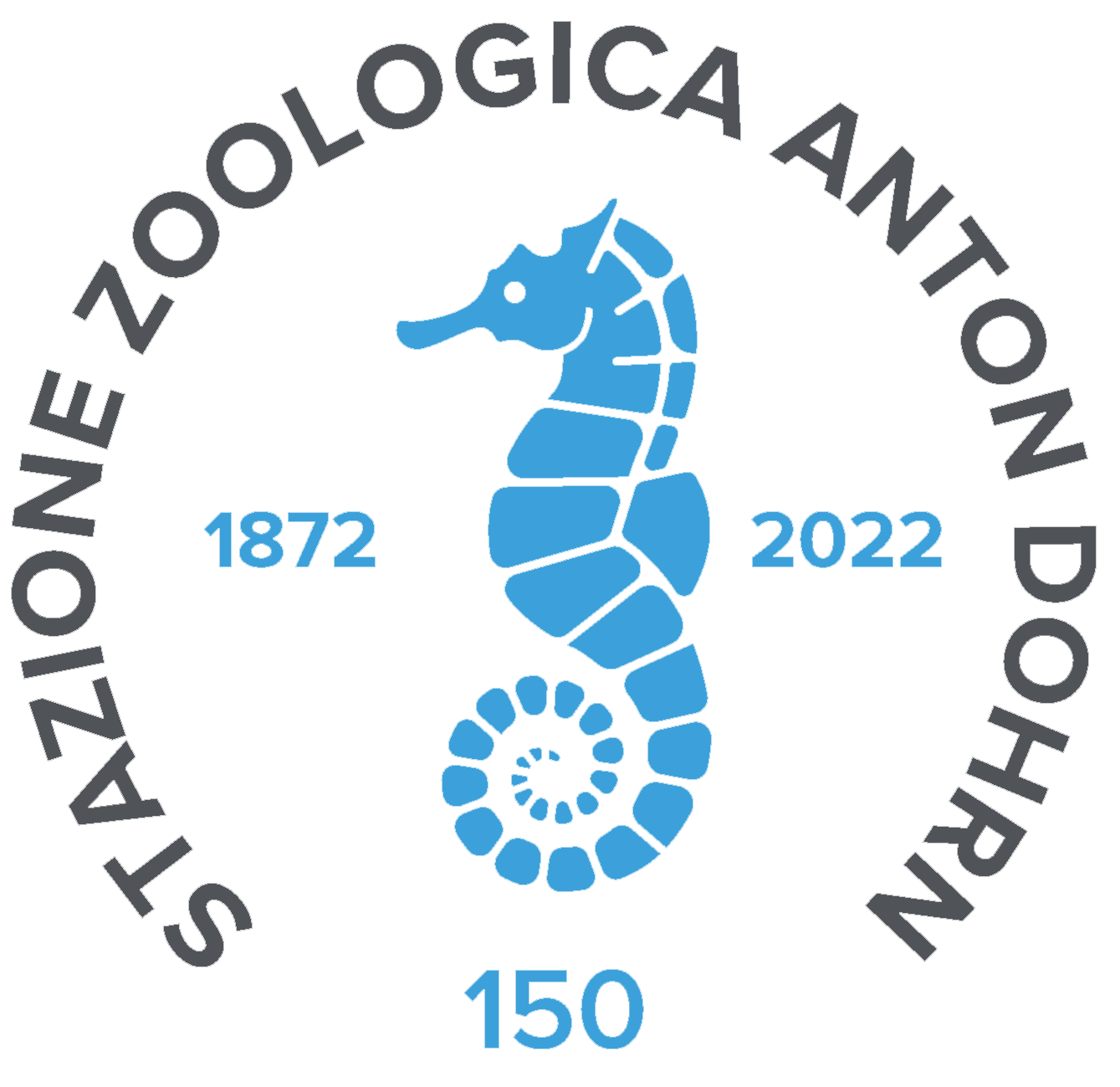
La Stazione Zoologica Anton Dohrn – Ente pubblico nazionale di ricerca appartenente al Ministero dell’Università e della Ricerca - celebrerà nel 2022 il 150° anniversario dalla fondazione. Si tratta del più antico Istituto di ricerca sul mare al mondo e del più antico Ente di ricerca Italiano indipendente dalle Accademie, un patrimonio unico di conoscenze, che vede brillare la competenza e la ricerca italiana nel mondo.
La Stazione Zoologica Anton Dohrn venne fondata a Napoli nel 1872 grazie alla visione dello scienziato tedesco Anton Dohrn, ispirato da Charles Darwin per fornire le prove scientifiche dell’evoluzionismo. Oltre 20 premi Nobel hanno lavorato e studiato presso questo Ente di ricerca dalla sua fondazione, fornendogli una reputazione internazionale. Qui ricercatori italiani e stranieri collaborano per lo sviluppo di ricerche di eccellenza sul presente e sul futuro del mare. La SZN è stata recentemente inclusa tra le dieci migliori istituzioni al mondo nell’ambito della biologia marina. Si tratta un riconoscimento di grande rilievo per la ricerca scientifica italiana nel suo complesso, che vede nel settore marino uno dei suoi punti di forza e in grado di rivaleggiare con le più prestigiose istituzioni internazionali statunitensi, francesi, tedesche e australiane.
Guardando alla rilevanza di mari e oceani per l’umanità, le Nazioni Unite hanno dedicato il prossimo decennio 2021-2030 alla Ricerca sugli Oceani per uno sviluppo sostenibile. Pensiamo all’importanza della pesca o alle energie rinnovabili dal mare, come l’eolico, le onde, le correnti e il solare offshore, che richiedono studi per renderle pienamente eco-compatibili.
L’11 e il 12 novembre 2022 la Sede Calabria (CRIMAC) ospiterà la Riunione Scientifica Annuale del gruppo di Algologia della Società Botanica Italiana.
In fondo alla locandina troverete il link per seguire l'evento
